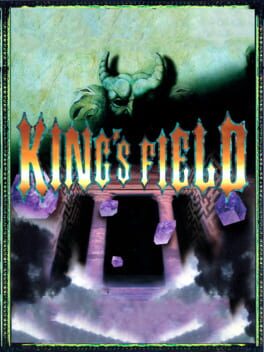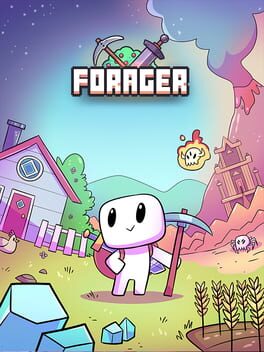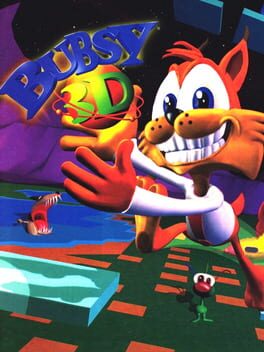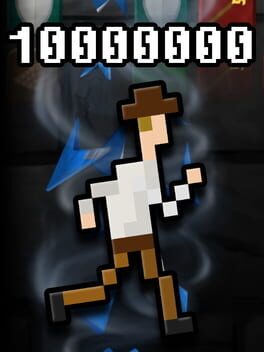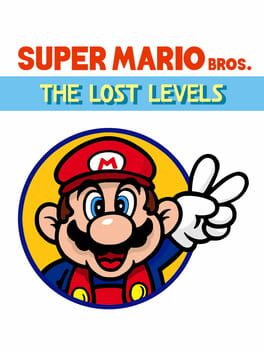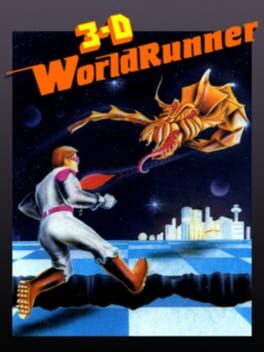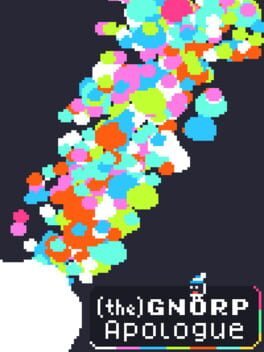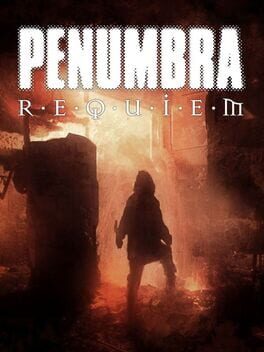MisterAtlas_
1995
I think a big problem for people going back to play an old game is not being able to immediately survey the linear progression in game design between games of the period. I remember when I first got a PC, I was so excited to finally play Half-Life 1 after loving HL2 on The Orange Box, but sadly on first playthrough I totally bounced off. It was very frustrating because I was playing it like I played Half-Life 2: slower, and not using all my resources creatively and appropriately. Way later, I went even further back and played Doom, then Quake, which both directly affected how I played shooters - seeing all my weapons and ammo as necessary resources to be traded for progress, instead of just using the shotgun all the time (i like the hl2 shotgun a lot). Now when I go back to Half-Life 1, I see it as the natural progression of those games and can apply the skills I learned in them.
It's a joy when I do go back to an archaic, hard game, but I don't have to go back further to instinctively understand what the game's design is gesturing towards. In King's Field's case, it's no secret that they influenced the Souls games, and the effect of that is I can see all the strands connecting their game designs together. It's probably incorrect critically to assess the game through that lens - King's Field is King's Field and presumably had no pretentions to have decades of influence - but I can't not love seeing the vestigial elements of FromSoft's later works all the way back here on the PS1, in all its blocky polygonal skeleton glory.
The game starts with you being plonked down on a beach with no fanfare. At this point, your retro games sense may tingle and tell you to read the manual. You read the manual. Ok, I know who I am now. Let's go. The playable space is the most compelling part of this game. Unlike most PS1 games, I can't really say levels because there's no loading screens: every footstep is your own, except for when you engage with its strange teleportation system (which if you haven't figured out within a few hours of playing, you should probably look up because there are totally pits in this game you can get softlocked in and have to load a previous save. really.). The space in this game is pretty inventive for the time, occasionally looping on itself and having a nice amount of traps and intrigue to keep you on your toes. As you're starting out, you may notice that the framerate, for lack of a better word, sucks gorilla donkey dick through the anus of a warthog. It hits 30 sometimes. When it feels like it. But mostly it loves to be around 10-20, depending on how many triangles exist. This is a problem, because the game will often slow down and speed up mid-combat, leading you and the enemies to go from moving through treacle to slipping on custard, with no equally tasty in-between. This makes timing attacks harder, and is easily the game's biggest flaw.
Let's talk about the combat in all its satisfactory glory. In this game, you will see mind-boggling enemies with mind-boggling effects. Oddly enough, approaching enemies is fundamentally the same as a Souls game even though you're in first person. You observe them, bait an attack, move around, know the timings and hitbox of your weapon, and strike until dead. For some reason, it was funny to me how the premium technique for most enemies is to get behind them; years and years before you'd be able to backstab them, stunlocking and staying out of their hitboxes still works beautifully. All this is just far clunkier than it would become, as you'd probably expect. It plays how it looks - very chunky and functional. Chunktional. In addition to straight combat, you have spells and items. I couldn't help but notice how healing is done through consumable grass, refilling flasks with different effects, and spells using an MP system. FromSoft would be doing riffs on these systems for years to come.
The music is fairly standard but moody fare. The game's mood is entirely drab and depressing actually; the colour palette is muted, NPCs have no faces which means you're always emotionally isolated if not physically. This plus the lack of variety in textures became draining for me towards the end. My brain was stretched to the absolute limit of similar looking corridors it could remember. Luckily, the game ended soon after that. And what a truly fascinating ending it was. I have no idea what happened to be honest; I think I broke out of reality in a way I'm 100% certain no future games will ever reference. There are interesting smaller stories within the game though, even if the overarching one never coalesced for me.
I recommend this one if you're interested in old RPGs or are a huge Souls fan. It carries the same flavour of being stranded in a mysterious Western fantasy environment, but through the eyes of Japanese devs. I've put some tips throughout this review, but ultimately when you go into the past like this, part of the fun is discovering all the novel layers of bullshit that newer games have ironed out. Read the manual, look a few things up, use save states to a degree that saves you from tedium but still preserves challenge (it's a learning curve), and you might find it as weirdly compelling as I did.
It's a joy when I do go back to an archaic, hard game, but I don't have to go back further to instinctively understand what the game's design is gesturing towards. In King's Field's case, it's no secret that they influenced the Souls games, and the effect of that is I can see all the strands connecting their game designs together. It's probably incorrect critically to assess the game through that lens - King's Field is King's Field and presumably had no pretentions to have decades of influence - but I can't not love seeing the vestigial elements of FromSoft's later works all the way back here on the PS1, in all its blocky polygonal skeleton glory.
The game starts with you being plonked down on a beach with no fanfare. At this point, your retro games sense may tingle and tell you to read the manual. You read the manual. Ok, I know who I am now. Let's go. The playable space is the most compelling part of this game. Unlike most PS1 games, I can't really say levels because there's no loading screens: every footstep is your own, except for when you engage with its strange teleportation system (which if you haven't figured out within a few hours of playing, you should probably look up because there are totally pits in this game you can get softlocked in and have to load a previous save. really.). The space in this game is pretty inventive for the time, occasionally looping on itself and having a nice amount of traps and intrigue to keep you on your toes. As you're starting out, you may notice that the framerate, for lack of a better word, sucks gorilla donkey dick through the anus of a warthog. It hits 30 sometimes. When it feels like it. But mostly it loves to be around 10-20, depending on how many triangles exist. This is a problem, because the game will often slow down and speed up mid-combat, leading you and the enemies to go from moving through treacle to slipping on custard, with no equally tasty in-between. This makes timing attacks harder, and is easily the game's biggest flaw.
Let's talk about the combat in all its satisfactory glory. In this game, you will see mind-boggling enemies with mind-boggling effects. Oddly enough, approaching enemies is fundamentally the same as a Souls game even though you're in first person. You observe them, bait an attack, move around, know the timings and hitbox of your weapon, and strike until dead. For some reason, it was funny to me how the premium technique for most enemies is to get behind them; years and years before you'd be able to backstab them, stunlocking and staying out of their hitboxes still works beautifully. All this is just far clunkier than it would become, as you'd probably expect. It plays how it looks - very chunky and functional. Chunktional. In addition to straight combat, you have spells and items. I couldn't help but notice how healing is done through consumable grass, refilling flasks with different effects, and spells using an MP system. FromSoft would be doing riffs on these systems for years to come.
The music is fairly standard but moody fare. The game's mood is entirely drab and depressing actually; the colour palette is muted, NPCs have no faces which means you're always emotionally isolated if not physically. This plus the lack of variety in textures became draining for me towards the end. My brain was stretched to the absolute limit of similar looking corridors it could remember. Luckily, the game ended soon after that. And what a truly fascinating ending it was. I have no idea what happened to be honest; I think I broke out of reality in a way I'm 100% certain no future games will ever reference. There are interesting smaller stories within the game though, even if the overarching one never coalesced for me.
I recommend this one if you're interested in old RPGs or are a huge Souls fan. It carries the same flavour of being stranded in a mysterious Western fantasy environment, but through the eyes of Japanese devs. I've put some tips throughout this review, but ultimately when you go into the past like this, part of the fun is discovering all the novel layers of bullshit that newer games have ironed out. Read the manual, look a few things up, use save states to a degree that saves you from tedium but still preserves challenge (it's a learning curve), and you might find it as weirdly compelling as I did.
2019
Weirdly soulless when it didn't really need to be; the type of indie game where there's a guy on an island who spouts random Zelda 1 quotes for no discernible reason. At its base, it takes some of the familiar dopamine hits from games like Stardew Valley and Minecraft and throws them at you at hyperspeed. It keeps your hands very busy and takes minimal thought to do anything, so it's a podcast game really - I turned the music off about 5 minutes in. The pixel art is fine, the gameplay loop does what it sets out to do, but the writing is weirdly off. I can't really see any of the charm it supposedly has; I'd even say there's an almost imperceptible mean streak to some of it: killing the kind turnips (ok i didn't have to do that but you want the space), an old man impressing on you that you're killing so much of the place's (infinitely respawning) natural resources, the fact that every NPC wants you to know how their existence doesn't matter in the slightest. Should I care? The game tries so hard to not try at all with its writing.
The game's store page says "The idle game you want to keep actively playing!", which is odd because that takes the idle out of idle game making it just "game", but it does remind me of a certain type of good-not-great incremental game where all the math fits together but it's just lacking some cohesive alchemical thing. A soul probably.
The game's store page says "The idle game you want to keep actively playing!", which is odd because that takes the idle out of idle game making it just "game", but it does remind me of a certain type of good-not-great incremental game where all the math fits together but it's just lacking some cohesive alchemical thing. A soul probably.
1996
0.5 stars for Bubsy 3D? What a shocker!
But seriously, this game is shockingly, egregiously, irredeemably bad in a way that you need to experience for yourself to understand. I can only imagine the people who made this played it just before release and started rapidly biting their fingernails in nervous terror like in a cartoon, knowing just what they were about to put out into the world.
I finished level 2 and couldn't do any more. It's a big, wide open, messy level that - as far as I can tell - requires a temporary powerup to beat, which doesn't respawn, even after dying. So you can spend 20 minutes slowly manhandling Bubsy to complete the full level, take the powerup and not know exactly where to go with it, then it runs out so you're fucked and have to redo the entire thing. One day I might come back to be able to say that I've finished it, but my mental state will have to improve by like 5 points to handle it.
game sucks
But seriously, this game is shockingly, egregiously, irredeemably bad in a way that you need to experience for yourself to understand. I can only imagine the people who made this played it just before release and started rapidly biting their fingernails in nervous terror like in a cartoon, knowing just what they were about to put out into the world.
I finished level 2 and couldn't do any more. It's a big, wide open, messy level that - as far as I can tell - requires a temporary powerup to beat, which doesn't respawn, even after dying. So you can spend 20 minutes slowly manhandling Bubsy to complete the full level, take the powerup and not know exactly where to go with it, then it runs out so you're fucked and have to redo the entire thing. One day I might come back to be able to say that I've finished it, but my mental state will have to improve by like 5 points to handle it.
game sucks
2012
Jerma told me to play this, so I did.
This is a Match 3 game. It's firmly in the category of the kind of game you'd play on Newgrounds or Kongregate back in the day, with a simple gameplay loop anchored by a couple systems of numerical progression, but it's a tad longer to justify paying money for it. And I don't at all mind paying for this because I think people should get some cash for making a cool thing, but I felt the pacing was elongated a bit unnaturally. My ideal pacing for a game like this has each run feel like I've progressed in some way; here I would hit road blocks where I felt I was doing runs just to grind for gold - which you get too slowly, adding hours to your playtime. You can use potions which add modifiers to increase the rate you get gold, but at the detriment of earning fewer or no other resources, meaning you're going to be left wanting either way.
But most importantly, this game does successfully add more planning and strategy to the Match 3 formula, so if you're a fan I recommend it. Certain panels correspond to physical or magical attacks, to which enemies will have different resistances to, and you get items to be used at strategic points during your run. Your aim is to get the eponymous score of 10000000000000000, which will take you approximately 152704 hours. I think this is a reasonable playtime for a game costing 3 currency.
In conclusion: not as good as Tetris Attack, but it won't make you hate your friends, which counts for something in this harsh world.
This is a Match 3 game. It's firmly in the category of the kind of game you'd play on Newgrounds or Kongregate back in the day, with a simple gameplay loop anchored by a couple systems of numerical progression, but it's a tad longer to justify paying money for it. And I don't at all mind paying for this because I think people should get some cash for making a cool thing, but I felt the pacing was elongated a bit unnaturally. My ideal pacing for a game like this has each run feel like I've progressed in some way; here I would hit road blocks where I felt I was doing runs just to grind for gold - which you get too slowly, adding hours to your playtime. You can use potions which add modifiers to increase the rate you get gold, but at the detriment of earning fewer or no other resources, meaning you're going to be left wanting either way.
But most importantly, this game does successfully add more planning and strategy to the Match 3 formula, so if you're a fan I recommend it. Certain panels correspond to physical or magical attacks, to which enemies will have different resistances to, and you get items to be used at strategic points during your run. Your aim is to get the eponymous score of 10000000000000000, which will take you approximately 152704 hours. I think this is a reasonable playtime for a game costing 3 currency.
In conclusion: not as good as Tetris Attack, but it won't make you hate your friends, which counts for something in this harsh world.
A true mixed bag. If you love the original, there's a bunch of levels here that push your ability to its absolute limit, and are generally fun as hell to learn and master. But then about 30% of the levels are either totally cryptic and need a guide, or are straight-up unfun (swimming mostly).
I still think this could have been a great sequel if they had focused on the actual platforming; it's not like they didn't understand how to elevate the first game's difficulty because there are levels that do that perfectly. Super Mario Bros revolutionised the entire industry on the basis of it being fundamentally fun to run and jump and control this weird mushroom man. I just wish they'd carried that concept all the way through this game too.
I still think this could have been a great sequel if they had focused on the actual platforming; it's not like they didn't understand how to elevate the first game's difficulty because there are levels that do that perfectly. Super Mario Bros revolutionised the entire industry on the basis of it being fundamentally fun to run and jump and control this weird mushroom man. I just wish they'd carried that concept all the way through this game too.
1987
Without a doubt in my mind, this is the most important game ever made. You star as the titular 3-D WorldRunner, in his 3-D WorldRunner adventures, mostly involving WorldRunning through a 3-D World. (https://www.youtube.com/watch?v=jTbH25YNxE4)
The game's use of early 3D may be seen as a gimmick by some, but I believe it is integral to the game's overall message. This game wants you to instinctively FEEL like it's a real experience, and for me, it was. Fourteen years before Metal Gear Solid 2 made its bold statement of art and specifically video games being worthwhile as contributions to human culture and society to be passed down through generations, here we have a game demanding your immersion through it's use of 3D graphics. There's even a special 3D mode allowing the use of 3D glasses to further remove the barrier between player and game.
Indeed, it's no coincidence the name of 3D WorldRunner is also Jack. This game was undoubtedly an influence on Hideo Kojima's conception of Raiden, and I believe it holds equal importance as an artistic statement on video games, art, and society.
Let's first examine the game through the lens of "Man vs. Man". There is one man in this game. But indeed he faces himself, through the monsters and obstacles he runs past. Such a beautiful statement on human determination: there is nothing more powerful than a discipled mind focused on one concrete goal, in this case, WorldRunning. The player and Jack are one in this, there is no barrier between them, for every person wishes for 3D WorldRunning in their SOUL. Was this game a direct influence on Toby Fox when he designed Undertale? I'm here to say: probably.
The next facet: "Man vs. Environment". The 3D World is a treacherous space. Checkered. Scrolling. Yellow. All words I could use to describe it. All that stands between you falling into the abyssal void is one perfectly timed jump after another. Perhaps this reminds you of something. Indeed, our lives are a sequence of perfectly timed jumps, and is anyone there to catch us when we fall? In 3D WorldRunner, no. A portrait of a world with just one man is a desolate one; no man is an island and this game teaches us that we must hold each other up if we wish to see the Sun.
The final truth: "Man vs. Society". At the end of every world, you face a dragon. Myths of dragons stretch back centuries; they are a beast to be overcome, requiring much courage, but yielding much reward, often monetary as the dragon's hoard is redistributed. How can this be seen as anything other than a call towards a more just society in which wealth is no longer controlled by the few but in the possession of the many? The dragon is a "Boss" in the video game sense, but also the societal sense, it clearly holds dominion over the smaller creatures, hoarding all those precious points, and your role as the Saint George of this 3D World is something we can all aspire to, in order to effect societal change in the real world. Again, this game's influence is felt in Persona 5, among others.
I hope I've given a glimpse of why this game is so important, not least to me. It's a primal call to the deepest part of our primitive brains for us to come together and end injustice to others and the self through art, music, books, literature, and in this case, video games. And the music is pretty good too.
The game's use of early 3D may be seen as a gimmick by some, but I believe it is integral to the game's overall message. This game wants you to instinctively FEEL like it's a real experience, and for me, it was. Fourteen years before Metal Gear Solid 2 made its bold statement of art and specifically video games being worthwhile as contributions to human culture and society to be passed down through generations, here we have a game demanding your immersion through it's use of 3D graphics. There's even a special 3D mode allowing the use of 3D glasses to further remove the barrier between player and game.
Indeed, it's no coincidence the name of 3D WorldRunner is also Jack. This game was undoubtedly an influence on Hideo Kojima's conception of Raiden, and I believe it holds equal importance as an artistic statement on video games, art, and society.
Let's first examine the game through the lens of "Man vs. Man". There is one man in this game. But indeed he faces himself, through the monsters and obstacles he runs past. Such a beautiful statement on human determination: there is nothing more powerful than a discipled mind focused on one concrete goal, in this case, WorldRunning. The player and Jack are one in this, there is no barrier between them, for every person wishes for 3D WorldRunning in their SOUL. Was this game a direct influence on Toby Fox when he designed Undertale? I'm here to say: probably.
The next facet: "Man vs. Environment". The 3D World is a treacherous space. Checkered. Scrolling. Yellow. All words I could use to describe it. All that stands between you falling into the abyssal void is one perfectly timed jump after another. Perhaps this reminds you of something. Indeed, our lives are a sequence of perfectly timed jumps, and is anyone there to catch us when we fall? In 3D WorldRunner, no. A portrait of a world with just one man is a desolate one; no man is an island and this game teaches us that we must hold each other up if we wish to see the Sun.
The final truth: "Man vs. Society". At the end of every world, you face a dragon. Myths of dragons stretch back centuries; they are a beast to be overcome, requiring much courage, but yielding much reward, often monetary as the dragon's hoard is redistributed. How can this be seen as anything other than a call towards a more just society in which wealth is no longer controlled by the few but in the possession of the many? The dragon is a "Boss" in the video game sense, but also the societal sense, it clearly holds dominion over the smaller creatures, hoarding all those precious points, and your role as the Saint George of this 3D World is something we can all aspire to, in order to effect societal change in the real world. Again, this game's influence is felt in Persona 5, among others.
I hope I've given a glimpse of why this game is so important, not least to me. It's a primal call to the deepest part of our primitive brains for us to come together and end injustice to others and the self through art, music, books, literature, and in this case, video games. And the music is pretty good too.
2023
I have a love/hate relationship with idle games, and the hate portion can be summed up with my ardent belief that the creator of NGU Idle shouldn't be allowed near a computer ever again. The ideal idle experience for me is one that takes the purity of manipulating numbers that all other genres obfuscate and mashes it with engaging upgrades, strategy, and an endearing concept. First and foremost, Gnorp Apologue is on the good side of incremental gaming. It has a very simplistic art style, with your little hardworking gnorps being like 6x5 pixels, but it's fun and satisfying to see those busybodies busybodying around, doing your bidding. Certain upgrades and gnorp professions have synergies which keep you strategizing and not just blindly clicking upgrades, but at the same time it's relatively forgiving; at worst, a bad strategy will have you waste some time.
Here we come to the elephant in the room: does this game respect your time? Yes and no. I truly believe the ideal idle game not only possesses the qualities I listed above, but can also be completed within less than a day of play. All idle games I've played that pass this time limit I find are extending their length beyond what interesting content they have. Prestiging is a basic concept of the genre, but so many have you go through an hours long cycle to make a tiny upgrade, and then you do it all again. Repeat for weeks of your life. Gnorp Apologue is definitely better than most at this - I still felt that I was experimenting and learning new things with each cycle even if all I got for my troubles was one or two more prestige points - but it's undoubtable that the rate of new content thrown at you lowers dramatically after the first few hours.
Here we come to the elephant within the elephant within the room (the first one was hungry): you have to pay for this game to play it. I think this game is worth the money, but all paid incremental games hit this wall. A game about manipulating numbers can only have so many systems and layers until it becomes ungodly complicated and/or require an unworthy amount of dev time. So the rate at which this content is introduced inevitably slows down at a certain point of complexity until you've prestiged enough times to beat it. It took me just over 17 hours (with a fair amount of idling) to do so. I believe if the numbers were fudged so that it took more like 10 hours instead, it would be a more consistently engaging experience. But I don't regret any time I spent with this game. After finishing, I went back to get some more prestige points to see the endgame of my overarching strategy, then got the rest of the achievements, which I don't do that regularly. So overall it won't change your opinion on idle games but, if your views on them align with mine, I think you'll get your money's worth. End of review. Nothing else to say. Nope.
gnorp
Here we come to the elephant in the room: does this game respect your time? Yes and no. I truly believe the ideal idle game not only possesses the qualities I listed above, but can also be completed within less than a day of play. All idle games I've played that pass this time limit I find are extending their length beyond what interesting content they have. Prestiging is a basic concept of the genre, but so many have you go through an hours long cycle to make a tiny upgrade, and then you do it all again. Repeat for weeks of your life. Gnorp Apologue is definitely better than most at this - I still felt that I was experimenting and learning new things with each cycle even if all I got for my troubles was one or two more prestige points - but it's undoubtable that the rate of new content thrown at you lowers dramatically after the first few hours.
Here we come to the elephant within the elephant within the room (the first one was hungry): you have to pay for this game to play it. I think this game is worth the money, but all paid incremental games hit this wall. A game about manipulating numbers can only have so many systems and layers until it becomes ungodly complicated and/or require an unworthy amount of dev time. So the rate at which this content is introduced inevitably slows down at a certain point of complexity until you've prestiged enough times to beat it. It took me just over 17 hours (with a fair amount of idling) to do so. I believe if the numbers were fudged so that it took more like 10 hours instead, it would be a more consistently engaging experience. But I don't regret any time I spent with this game. After finishing, I went back to get some more prestige points to see the endgame of my overarching strategy, then got the rest of the achievements, which I don't do that regularly. So overall it won't change your opinion on idle games but, if your views on them align with mine, I think you'll get your money's worth. End of review. Nothing else to say. Nope.
gnorp
2008
The puzzles in these games are purely a way to force you deeper into the labyrinths the game designers have constructed, to make you go down that path you're dreading because of course there's an item you need down there. Or perhaps they test your ability to concentrate and think while an enemy is running towards you. On that basis, they work fine. In a game with no threats and bland level design, the puzzles are pushed to the forefront. And they fucking suck. If your puzzle game has me come away from it genuinely wondering if the developers even know what a puzzle is, you've fucked up. I rarely want games to be remade, but there's enough good ideas in this series that I think it deserves a second chance. There's an amazing series here buried under a couple of bad design decisions. The first two games are still worth playing though.
